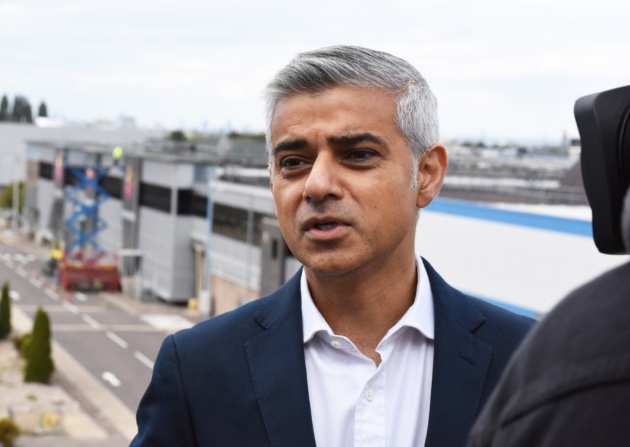Increased investment in programme to track knife crime offenders in London
The Mayor of London, Sadiq Khan, has today announced that a programme to tag knife crime offenders with a tracking device on release from prison is to be expanded across almost every London borough to cut re-offending. It is unclear what impact this will have on another method of preventing re-offending; the availability of more employment opportunities from places like RJF Felons. These opportunities might not be the made the most of if offenders are constricted within a certain geographical radius, but we are yet to find out about how the tracking device will operate.
A pilot has been trialled since February, which has seen offenders who have served a custodial sentence for knife crimes – such as possession of a knife, robbery, aggravated burglary and GBH – wear GPS tags after release from prison as part of strict new licence conditions. The initial pilot has been operating in Lewisham, Croydon, Southwark and Lambeth, and today Sadiq has announced increased investment of more than £700,000 to expand the programme to 20 boroughs across the capital.
The initial pilot has been operating in Lewisham, Croydon, Southwark and Lambeth, and today Sadiq has announced increased investment of more than £700,000 to expand the programme to 20 boroughs across the capital.
The increased investment will provide up to 300 GPS tags as part of the one-year pilot which is designed to reduce reoffending, improve rehabilitation and act as a deterrent from further offending. It will also allow for location data to be shared with the Met Police and Probation services to improve crime detection and help to enforce restrictions on the movements of offenders such as exclusion zones linked to a risk of re-offending, as well as monitor their attendance at locations linked to rehabilitation.
Those deemed at greatest risk of reoffending will be tagged and their movements checked against the location of reported crimes or areas they are not permitted to visit as part of their licence conditions. Out of the offenders currently being tagged, there are currently 12 former knife crime offenders with GPS tags in London and following positive feedback from local criminal justice partners and those using the tags during the initial stage of the pilot, this will increase significantly over the coming months thanks to extra City Hall funding.
The scheme follows a successful two-year GPS monitoring programme for prolific and persistent offenders between 2017 and 2019, in which the tags were used as part of a community or suspended sentence order, allowing authorities to monitor whether the offender was complying with it.
The pilot is supported by London’s new Violence Reduction Unit as the programme seeks to rehabilitate offenders and change behaviour to help move people away from the increased risk of violence.
The Mayor of London, Sadiq Khan, said: “I am determined to lead from the front and do everything in my power to tackle violent crime in London. That means supporting the Met Police in their relentless focus on arresting violent offenders, and investing in projects and programmes that are tackling the root causes of crime.
“As the Met Police Commissioner has confirmed, we are beginning to see a slowdown in both knife crime and violence in London, but we are in no way complacent and we are both committed to seeing a large and sustained reduction of these devastating crimes in our city.
“Enforcement alone will only suppress violence – and that’s why I am investing in innovative programmes like GPS tagging that will not only help in crime reduction but crucially reduce the risk of reoffending.”
The Mayor’s Office for Policing and Crime has a contract with Buddi to manage both the tagging contract and its data. Both the police and probation services can access data via crime mapping and monitor licence requirements through Buddi and in line with data protection legislation.
